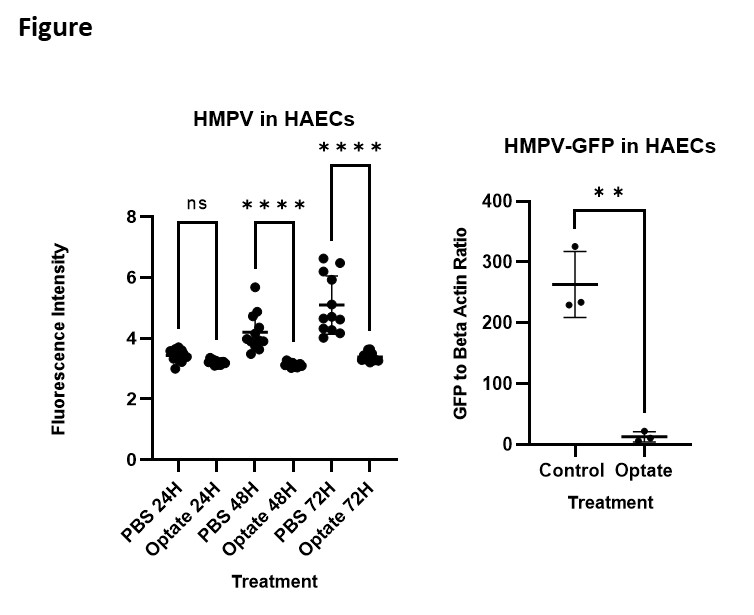Abstract
Human Metapneumovirus (hMPV) is a leading cause of respiratory infection, hospitalizations and asthma exacerbations. There are currently no antiviral treatments or vaccines to prevent hMPV. Low airway surface pH impairs antimicrobial host defense and worsens airway inflammation. Optate, an inhaled alkaline buffer, safely raises airway surface pH in humans and raises intracellular pH (pHi) in primary human airway epithelial cells (HAECs). Raising pHi also inhibits SARS-CoV-2 and Respiratory Syncytial Virus (RSV) infection in HAECs. We hypothesized that Optate would similarly inhibit hMPV airway infection. HAECs from a healthy subject were cultured in submerged conditions, infected with green fluorescent protein-labeled hMPV (hMPV-GFP; multiplicity of infection = 1) and treated with Optate or a phosphate-buffered saline control. hMPV infection was quantified using fluorescence intensity analysis, an enzyme-linked immunosorbent assay (ELISA), and immunoblot analysis to detect GFP. Fluorescence intensity was decreased in Optate-treated cells (Figure, 48H p=.0008, 72H p<0.0001). Also, Western blot analysis and ELISA results showed a significant decrease in GFP after Optate treatment (Figure, 72H p=.0014, 72H p=.0023). Results indicate that Optate inhibits hMPV infection in primary HAECs. Our findings suggest that Optate may have potential as a therapy for patients with hMPV.
